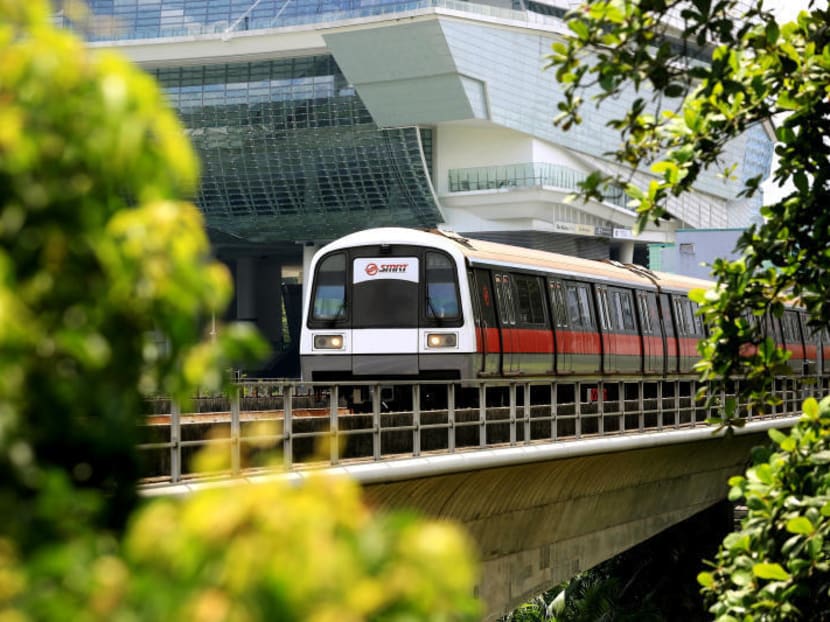SMRT maintenance lapse: Limited options under the law to take those responsible to task, say legal experts
SINGAPORE — There are limited options under existing laws to bring SMRT or the staff responsible to task for the maintenance lapse involving suspected falsification of records, said lawyers and law academics on Wednesday (Nov 1).
SINGAPORE — There are limited options under existing laws to bring SMRT or the staff responsible to task for the maintenance lapse involving suspected falsification of records, said lawyers and law academics on Wednesday (Nov 1).
They noted that there is no specific legislation governing the daily operations of the rail operator SMRT, and the negligence has to be proven to endanger human life, among other things.
The experts were commenting on the preliminary findings of the operator’s internal probe into the flooding of MRT train tunnels after a rain storm on Oct 7 led to train services on the North-South Line being shut down for over 20 hours.
A report, which was released on Tuesday, showed that the crew responsible for the maintenance of the pump system at Bishan MRT Station had signed off and submitted maintenance records for nearly a year, without carrying out the works. Transport experts and observers were shocked and concerned with the findings, with an analyst noting that the lapse bordered on criminality. In countries such as South Korea for example, such negligence would be deemed criminal, said Dr Park Byung Joon, an urban transport expert from the Singapore University of Social Sciences.
The manager and staff members in charge of maintenance have been suspended, and are assisting in investigations. Responding to TODAY’s queries, Ms Margaret Teo, SMRT’s head of corporate marketing and communications, said the operator would “follow due disciplinary process and take the appropriate actions”. TODAY understands that no police report has been filed.
Lawyer Ramesh Tiwary noted that the falsification of records by the crew was in itself “not a criminal offence” but it could be argued as such under certain circumstances, like in a situation where false information was provided to a public servant, for example.
As for SMRT, “the only way for the employer to be found liable is if it had (been) negligent”, and had knowledge of its employees’ wrongdoing but did nothing, Mr Tiwary said. Another lawyer, Mr Luke Lee, added that if the lapse had only resulted in the “failure to provide efficient service, there are no criminal liabilities”.
Nevertheless, Singapore Management University law don Eugene Tan pointed out that the matter would be more severe if “deliberate misconduct” was involved, while lawyer Amarjit Singh Sidhu argued that “there are elements of dishonesty and moral turpitude” in the falsification of the records, along with the possible contravention of other bylaws.
As far as a potential civil suit is concerned, substantial damages suffered - such as monetary loss - as a direct result of the negligence would have to be proven, the experts said.
It “would (not be) … impossible, but difficult to prove … (and) quantify damages” that arose from the incident, said Mr Lee.
Assoc Prof Tan felt that throwing the book at SMRT or the staff responsible may not be the answer. What are needed are “proper and regular supervision, and audits by the (public transport operators) and the Land Transport Authority (LTA)”, he said.
“You need good laws for sure, but they need to be properly enforced and regularly audited and reviewed for effectiveness,” said Assoc Prof Tan. “Often, when the book has to be thrown when the lapse could have been discovered and remedied earlier, the regulatory framework has failed,” he added.
At a press briefing more than a week after the flooding incident, Transport Minister Khaw Boon Wan said his preference was not to return to a system of penalties and fines because it created an “adversarial” relationship between the regulator and operator, but the decision rested with the LTA.
On Tuesday, the LTA said it was “deeply concerned” by SMRT’s findings, and reiterated that it views breaches of all rail operating licences seriously, including those pertaining to the maintenance of the rail operating assets.
It will “independently evaluate SMRT’s investigation findings on the suspected falsification of maintenance records” into the Oct 7 incident. It added: “LTA is carrying out a full investigation into the incident and will make its recommendation on the penalties to the LTA Board in due time.”







